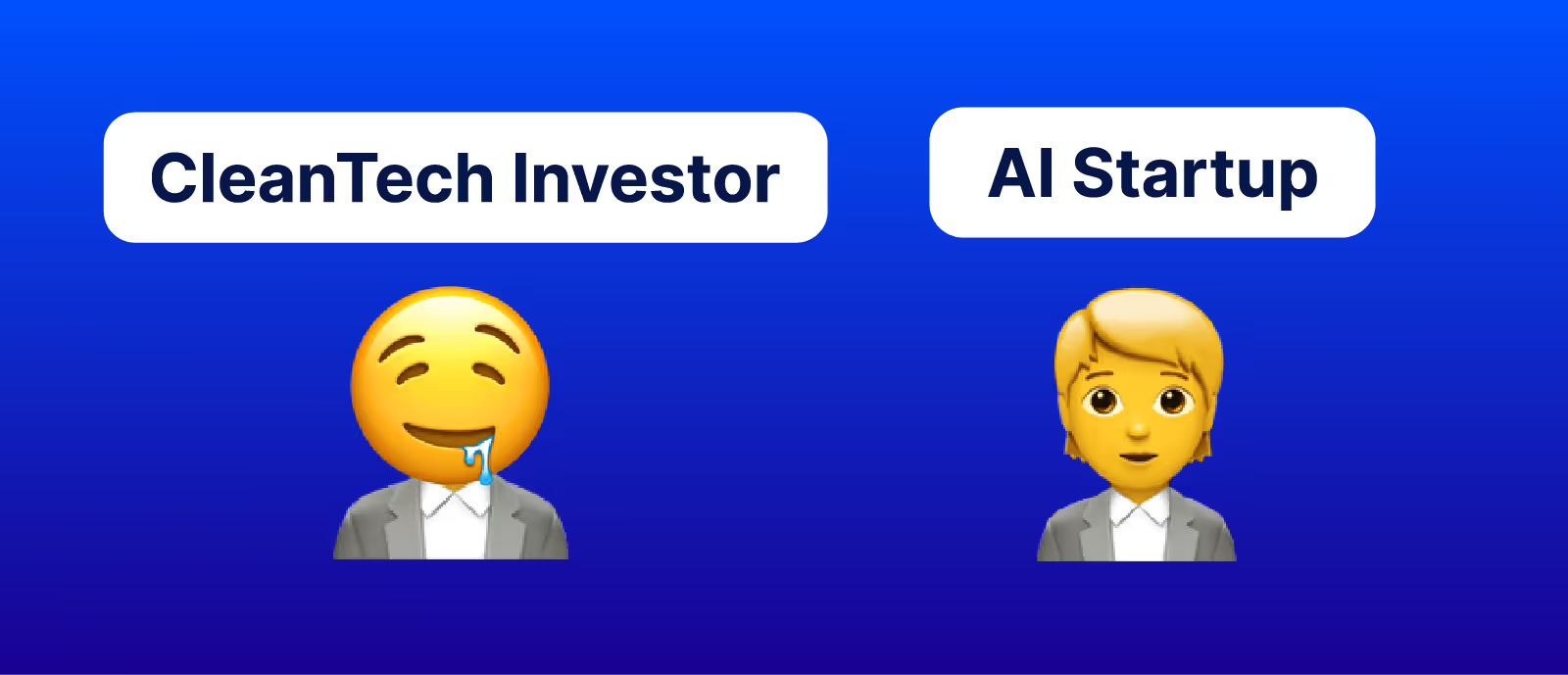What Industries do Venture Capitalists Invest in? (Listed Out)


When it comes to raising capital, I often hear founders say they want to get in touch with investors who specifically invest in their tiny, niche industry.
The truth is, very few investors have highly specific theses they focus on, and even fewer target extremely niche industries.
So, why is this the case, and how should you go about finding the right investors for your startup? Well, in this article we cover which industries investors invest in and why specialized investors are so rare.
And before we dive in, if you're curious, we also wrote an article covering the hottest industries with venture capital investors here.
Now, let's dive in.
Why do Investors Rarely Have a Specific Focus?

Investors generally avoid having a very narrow focus because it limits the pool of potential companies they can invest in.
If an investor comes across a great founder with a great product, they might hesitate to invest if it doesn’t align perfectly with their thesis. This can be problematic because a rigid focus can mean missing out on promising opportunities.
In fact, generalist investors often have better-performing funds than those with a specific thesis. Why? Because they can be more flexible and opportunistic, investing in a wide range of industries and types of companies.
This diversity often leads to better returns and more balanced portfolios.
Why do Specialized Investors Invest Outside of their Thesis?

Interestingly, many investors with specific theses often bend their own rules. For example, an investor focused on sustainability might still invest in a software company that sells to solar farms.
This company might not make a huge impact on global sustainability, but if the metrics look good and the investment seems promising, the investor might go for it anyway.
This flexibility is crucial because it allows investors to capitalize on good opportunities, even if they don’t fit neatly into their original focus.
It’s a reminder that while investors might have stated theses, they’re often more flexible than they appear.
Do Truly Specialized Investors Exist?
It’s a common misconception that investors only invest in specific industries like AR, VR, blockchain, or automobiles.
In reality, being this specific would lead to a very small pool of startups and few investment opportunities, which is not ideal for maintaining a healthy fund.
Instead, investors usually focus on broader industry categories that have characteristics they like. These categories encompass a wide range of related technologies and products, giving investors more options and increasing the chances of finding successful companies.
What Industries do Investors Actually Invest In?
Here are the broader industry categories that investors typically invest in. When searching for an investor who might invest in your company, these are the interests you should be filtering by.
1. Consumer Goods
This includes electronics, VR and AR tools, Internet of Things (IoT) devices, apparel, and other hardware goods. Investors look for innovative products that can capture consumer interest and generate significant sales.
Examples of Consumer Goods Companies:
2. AgTech
AgTech covers anything that helps with agriculture, from robotics to genetic modifications aimed at improving crop quality. It’s a broad field that includes technologies designed to make farming more efficient and sustainable.
Examples of AgTech Companies:
3. HardTech
HardTech encompasses a wide range of products, including driverless vehicles, drones, and cameras. It can also include AR and VR goggles, among other advanced hardware technologies.
Examples of HardTech Companies:
3. DeepTech
DeepTech involves significant research and technological breakthroughs. Companies like SpaceX and OpenAI fall into this category, as do any startups working on groundbreaking technologies.
Examples of DeepTech Companies:
4. Artificial Intelligence
This includes anything that uses machine learning or other methods to develop advanced algorithms. Examples include companies working on AI-driven applications, from image recognition to autonomous systems.
Examples of AI Companies:
5. Enterprise Software
Enterprise software generally refers to B2B software companies. Even if a company starts off targeting small businesses, they often aim to move upmarket to serve larger enterprises.
Examples of Enterprise Software Companies:
6. Consumer Software
These are software companies that sell directly to consumers. Examples include apps like Calm, Robinhood, and various social media platforms.
Examples of Consumer Software Companies:
7. Biotech
Biotech is a specialized subset of healthcare that includes vaccine technology, genomic research, and other medical innovations. It’s a field focused on significant advancements in health and medicine.
Examples of Biotech Companies:
8. FinTech
FinTech covers all software related to financial technology, whether it’s B2B or B2C. This includes everything from mobile banking apps to blockchain-based solutions.
Examples of FinTech Companies:
9. EdTech
EdTech involves any software or technology designed to enhance education, whether it’s sold to educational institutions or directly to students and teachers.
Examples of EdTech Companies:
10. CleanTech
CleanTech includes technologies aimed at sustainability and energy efficiency. Examples are solar energy solutions, electric vehicles, and battery technologies.
Examples of CleanTech Companies:
11. HealthTech
HealthTech encompasses medical devices and software designed to improve healthcare. This can include anything from new medical instruments to platforms that streamline healthcare administration.
Examples of HealthTech Companies:
12. Crypto & Blockchain
Crypto and blockchain technologies cover a wide range of applications, from cryptocurrencies to decentralized apps built on blockchain platforms.
Examples of Crypto & Blockchain Companies:
13. Gaming
The gaming industry includes everything from large-scale console games to mobile apps. It’s a broad field with opportunities for innovative gameplay and entertainment experiences.
Examples of Gaming Companies:
14. Food & Beverage
Investments in food and beverage can range from restaurant chains to consumer goods found in grocery stores. It’s a diverse industry with constant demand.
Examples of Food & Beverage Companies:
15. Real Estate
Real estate investments can include anything from commercial properties to proptech (technology that enhances property management and transactions). While proptech often overlaps with consumer software, it remains a distinct category due to its focus on real estate.
Examples of Real Estate Companies:
16. All Industries
Some investors are known as “Generalist investors.” This set of investors is agnostic about the industries they invest in. They look for companies with strong growth potential and promising returns, regardless of the specific sector.
Examples of Generalist Investors:
Wrapping Up
So, how do you find investors who are actually interested in your industry? Start by segmenting investors who specialize in your field and reaching out to all generalist investors.
It’s common for investors to invest outside their own theses, so don’t hesitate to contact investors once you’ve already reached out to all specialist investors in your field.
Remember, many of these categories overlap, so select all that apply to your startup. If you’re using an investor database like LeadLofts, it will automatically deduplicate for you, making your search easier.
If you need additional help raising capital, feel free to reach out to our team. We have a database of more than 100,000 investors and would be more than happy to help you book meetings and ultimately secure funding.
Happy fundraising!





![Hottest Tech Sectors With Startup Investors [2026]](https://cdn.prod.website-files.com/5dc6051d242707b368c29acb/6691b1313d47007d513cc902_hot-sectors.avif)
